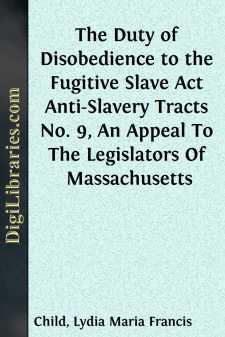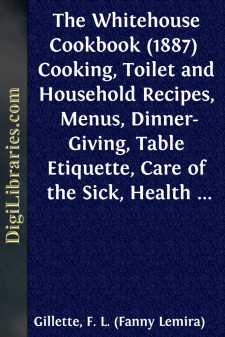Categories
- Antiques & Collectibles 13
- Architecture 36
- Art 48
- Bibles 22
- Biography & Autobiography 813
- Body, Mind & Spirit 141
- Business & Economics 28
- Children's Books 12
- Children's Fiction 9
- Computers 4
- Cooking 94
- Crafts & Hobbies 4
- Drama 346
- Education 46
- Family & Relationships 57
- Fiction 11826
- Games 19
- Gardening 17
- Health & Fitness 34
- History 1377
- House & Home 1
- Humor 147
- Juvenile Fiction 1873
- Juvenile Nonfiction 202
- Language Arts & Disciplines 88
- Law 16
- Literary Collections 686
- Literary Criticism 179
- Mathematics 13
- Medical 41
- Music 40
- Nature 179
- Non-Classifiable 1768
- Performing Arts 7
- Periodicals 1453
- Philosophy 64
- Photography 2
- Poetry 896
- Political Science 203
- Psychology 42
- Reference 154
- Religion 513
- Science 126
- Self-Help 83
- Social Science 81
- Sports & Recreation 34
- Study Aids 3
- Technology & Engineering 59
- Transportation 23
- Travel 463
- True Crime 29
The American Frugal Housewife
Description:
Excerpt
INTRODUCTORY CHAPTER
The true economy of housekeeping is simply the art of gathering up all the fragments, so that nothing be lost. I mean fragments of time, as well as materials. Nothing should be thrown away so long as it is possible to make any use of it, however trifling that use may be; and whatever be the size of a family, every member should be employed either in earning or saving money.
'Time is money.' For this reason, cheap as stockings are, it is good economy to knit them. Cotton and woollen yarn are both cheap; hose that are knit wear twice as long as woven ones; and they can be done at odd minutes of time, which would not be otherwise employed. Where there are children, or aged people, it is sufficient to recommend knitting, that it is an employment.
In this point of view, patchwork is good economy. It is indeed a foolish waste of time to tear cloth into bits for the sake of arranging it anew in fantastic figures; but a large family may be kept out of idleness, and a few shillings saved, by thus using scraps of gowns, curtains, &c.
In the country, where grain is raised, it is a good plan to teach children to prepare and braid straw for their own bonnets, and their brothers' hats.
Where turkeys and geese are kept, handsome feather fans may as well be made by the younger members of a family, as to be bought. The sooner children are taught to turn their faculties to some account, the better for them and for their parents.
In this country, we are apt to let children romp away their existence, till they get to be thirteen or fourteen. This is not well. It is not well for the purses and patience of parents; and it has a still worse effect on the morals and habits of the children. Begin early is the great maxim for everything in education. A child of six years old can be made useful; and should be taught to consider every day lost in which some little thing has not been done to assist others.
Children can very early be taught to take all the care of their own clothes.
They can knit garters, suspenders, and stockings; they can make patchwork and braid straw; they can make mats for the table, and mats for the floor; they can weed the garden, and pick cranberries from the meadow, to be carried to market.
Provided brothers and sisters go together, and are not allowed to go with bad children, it is a great deal better for the boys and girls on a farm to be picking blackberries at six cents a quart, than to be wearing out their clothes in useless play. They enjoy themselves just as well; and they are earning something to buy clothes, at the same time they are tearing them.
It is wise to keep an exact account of all you expend—even of a paper of pins. This answers two purposes; it makes you more careful in spending money, and it enables your husband to judge precisely whether his family live within his income. No false pride, or foolish ambition to appear as well as others, should ever induce a person to live one cent beyond the income of which he is certain. If you have two dollars a day, let nothing but sickness induce you to spend more than nine shillings; if you have one dollar a day, do not spend but seventy-five cents; if you have half a dollar a day, be satisfied to spend forty cents....


















